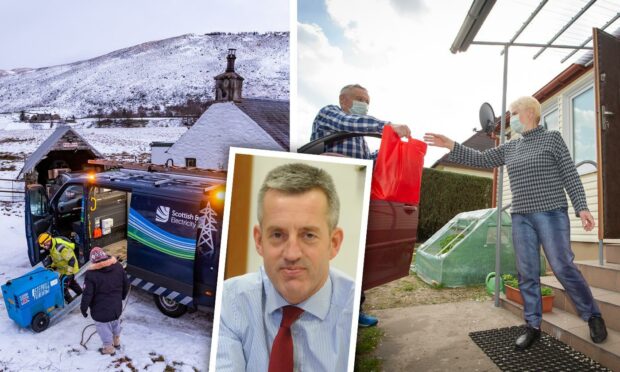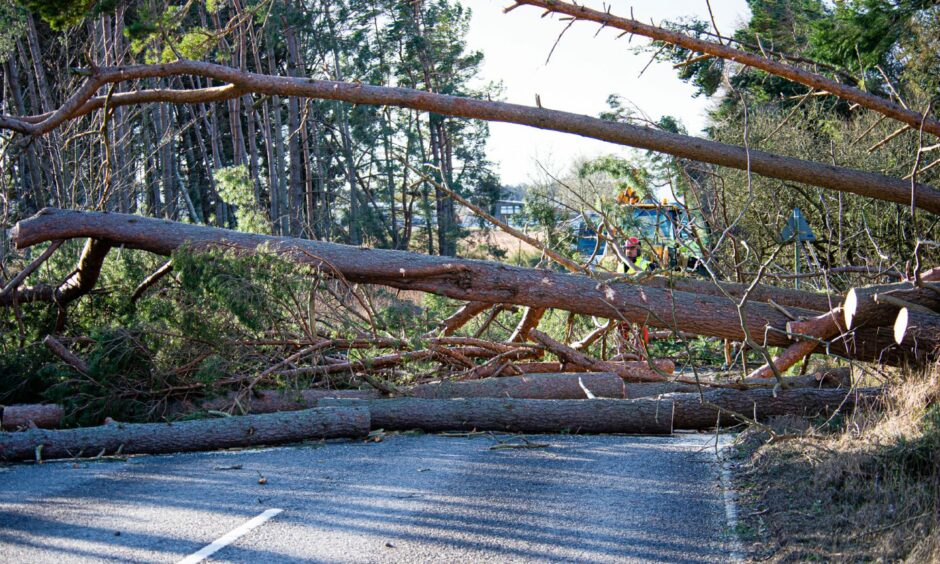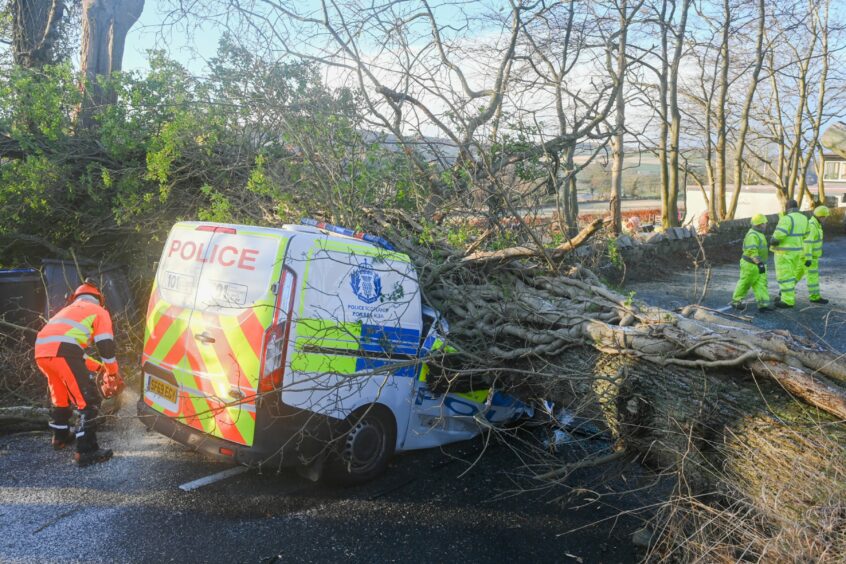People living in fear of “another Storm Arwen” are being assured that authorities are now as prepared as possible for such havoc-wreaking weather events.
In November last year, fierce winds damaged power lines and left more than 100,000 households in Scotland without electricity.
Homes and businesses in the north-east were the worst affected in the country.
Many had to wait more than a week to be reconnected to the grid while temperatures plummeted across the region.
Scottish and Southern Electricity Networks (SSEN) paid more than £13 million in compensation.
Several businesses were forced to shut due to the damage, with some deciding to close their doors permanently.
What does final Storm Arwen report say?
The Scottish Government has now published its third and final report looking at the response to the storm – and how it could have been improved.
The initial report, released in January, set out 15 recommendations for the “resilience partnerships” formed by police, energy suppliers and various other bodies.
The latest publication says every such group in Scotland will have conducted a full “winter readiness exercise” by the end of November.
That includes rehearsals for identifying vulnerable people, requesting mutual aid and communicating with the public – all challenges highlighted by Arwen.
‘We hope this reassures communities’
Meanwhile, specialists in the north and north-east are ensuring local areas can still deploy “more traditional means of public communication”.
Storm Arwen showed flyers, printed notices and radio announcements can be essential if electricity is cut off.
The report warns that storms are not the only weather incidents likely to cause disruption in the future, as July’s heatwave demonstrated.
But it also says successes like Operation Unicorn after the Queen’s death showed Scottish responders can be flexible and capable.
The report concludes: “[We] hope that the evidence set out here goes some way to reassure communities across Scotland that lessons have been learned.
“Improvements will continue to be made which will collectively strengthen our emergency response processes.”
Chairman of the Scottish Resilience Partnership, and chief executive of Aberdeenshire Council, Jim Savege praised the effort involved.
He said much of this year has been spent “making sure we are as prepared as we all can be”.




Conversation